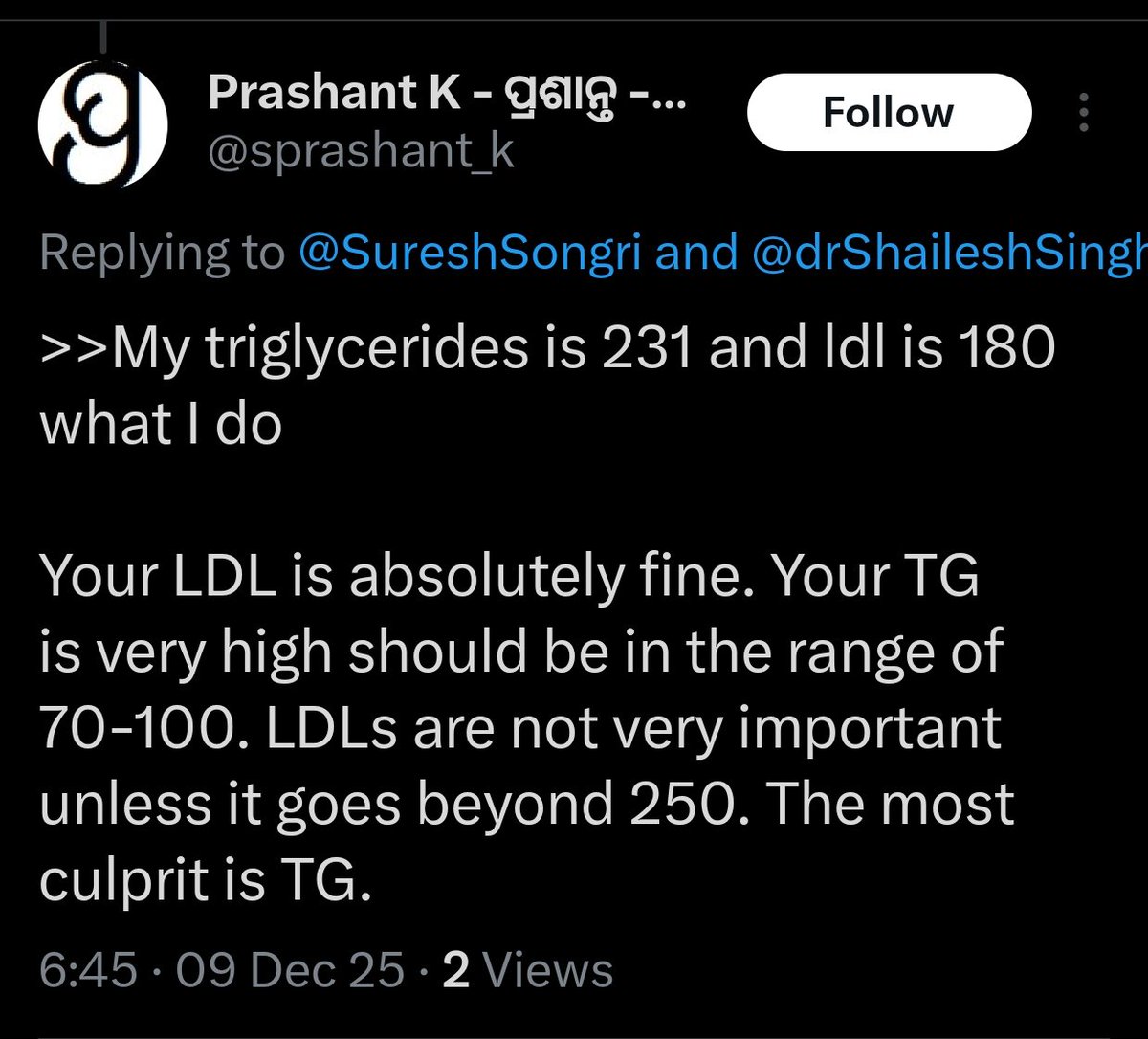
Interventional Cardiologist | Medical Education | #cardioEd | Heart Health Awareness | Public health & Patient Education | Let's Beat Heart Disease!
How to get URL link on X (Twitter) App


https://twitter.com/sprashant_k/status/1998199868461023470
 There are 4 independent lines of evidence proving LDL causes atherosclerotic cardiovascular disease:
There are 4 independent lines of evidence proving LDL causes atherosclerotic cardiovascular disease:
 What is Non-HDL cholesterol?
What is Non-HDL cholesterol?
https://twitter.com/mangan150/status/1982180079170957746This study the TRT guy is talking about included HEALTHY people without heart disease

 Lp(a) is a modified version of LDL cholesterol—and it's worse in every way.
Lp(a) is a modified version of LDL cholesterol—and it's worse in every way.

 Blood sugar improves the fastest.
Blood sugar improves the fastest. 




 LDL-C is atherogenic, meaning it contributes to the formation of arterial plaques, while HDL cholesterol is thought to be protective against coronary heart disease.
LDL-C is atherogenic, meaning it contributes to the formation of arterial plaques, while HDL cholesterol is thought to be protective against coronary heart disease. 
 What happens when you have ⬆️ Triglycerides?
What happens when you have ⬆️ Triglycerides?